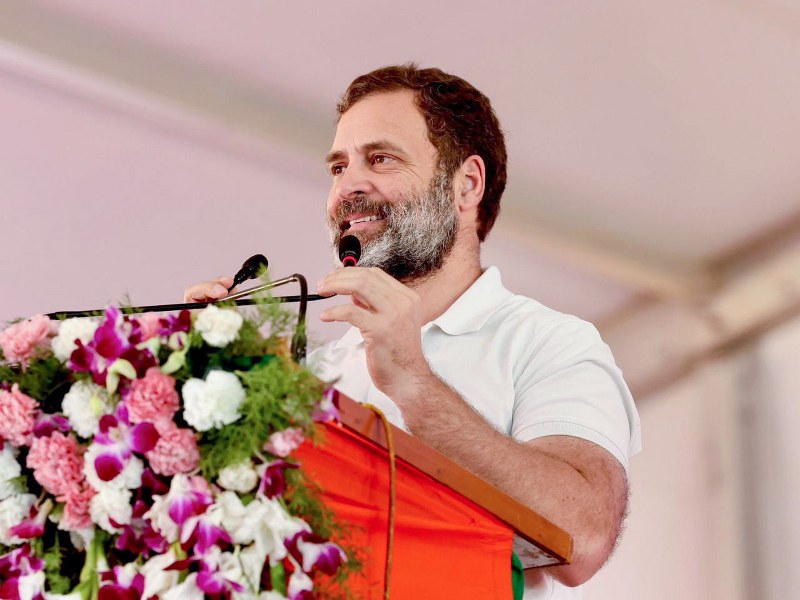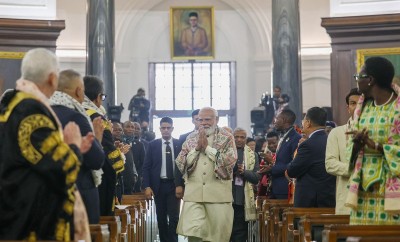 Rahul Gandhi
Rahul Gandhi
Rahul Gandhi criminal defamation case: What his future looks like after two years jail sentence?
New Delhi: Congress leader Rahul Gandhi, who was convicted and sentenced to two years imprisonment on Thursday by a lower court in Gujarat in a criminal defamation case, may lose his seat in the Parliament.
The leaders who lost their seats after getting jail terms of two years or more include Samajwadi Party leaders Azam Khan, his son, and RJD Supremo Lalu Prasad Yadav.
According to the Representation of the People Act 1951, Members of Parliament, Members of the Legislative Assembly and Members of the Legislative Council will forfeit their seats if they receive a jail sentence of at least two years. In such cases, they will also be disqualified from voting for a duration of six years, which means they will not be eligible to participate in any elections during this period.
Previously, the lawmakers, who were convicted, could retain their seats until they had exhausted all their legal options in district courts, high courts and the Supreme Court.
However, the Supreme Court bench of Justices AK Patnaik and SJ Mukhopadhaya ruled on July 10, 2013, ruled that Section 8(4) of the Representation of the People Act was unconstitutional. This section had given elected representatives a period of three months to appeal their conviction.
At the time, Congress ally Lalu Yadav of the RJD was about to be convicted in the fodder scam case. This was his first conviction.
In order to protect Lalu Yadav, the UPA government led by Prime Minister Manmohan Singh tried to reverse the Supreme Court's decision by introducing the Representation of the People (Second Amendment and Validation) Bill in 2013.
Law Minister Kapil Sibal introduced it in the Rajya Sabha on August 30. The amendment proposed that people's representatives would not be disqualified immediately after conviction. It provided that the MPs, MLAs and the MLCs will not be disqualified immediately after conviction.
The Supreme Court dismissed also dismissed a review petition filed by the UPA government on the judgment.
After Lalu Yadav’s conviction in fodder scam, the Congress-led government on September 24 tried to bring the bill into effect as an Ordinance.
However, it met the most unexpected opposition from then Congress vice-president Rahul Gandhi himself. At a press conference in Delhi, he called the Ordinance “complete nonsense that should be torn up and thrown away” he said that was his personal opinion. He did that when Prime Minister Manmohan Singh was abroad.
Congress took Rahul Gandhi's personal opinion seriously, and days after the Manmohan Singh government withdrew both the Ordinance and the Bill.
Later in October 2013, Lalu Yadav, then a Lok Sabha MP, was disqualified and banned from contesting elections for 11 years, which included five years of his imprisonment and an additional six years under the Representation of the People Act after his release. Subsequently, Lalu Yadav faced convictions in further cases related to the fodder scam, which effectively ended his political career.
Azam Khan, a leader from the Samajwadi Party, was disqualified from his Rampur seat in October 2022 after being sentenced to three years in jail in a hate speech case from 2019. A Rampur court sentenced Khan to three years imprisonment and imposed a fine of Rs 2,000 on him.
Following his conviction, the office of the UP Assembly Speaker announced that SP leader and Rampur MLA Azam Khan was disqualified from membership in the UP Legislative Assembly.
More recently, Azam Khan's son, Abdullah Azam, who was an SP MLA from the Suar seat in UP, faced a similar outcome and was disqualified from his position. He was convicted by a Moradabad court for two years in the Chhaljet case.
Support Our Journalism
We cannot do without you.. your contribution supports unbiased journalism
IBNS is not driven by any ism- not wokeism, not racism, not skewed secularism, not hyper right-wing or left liberal ideals, nor by any hardline religious beliefs or hyper nationalism. We want to serve you good old objective news, as they are. We do not judge or preach. We let people decide for themselves. We only try to present factual and well-sourced news.







